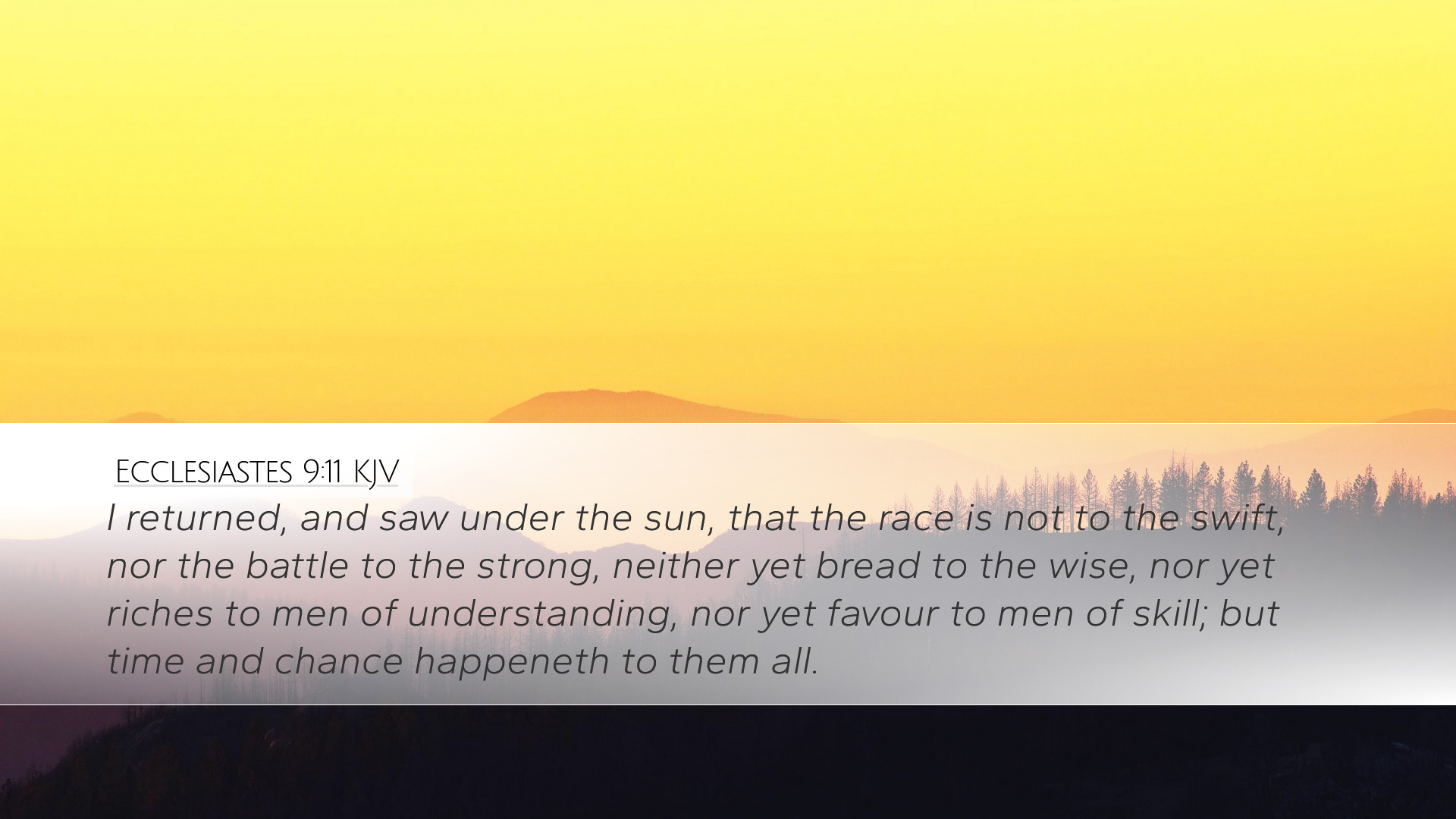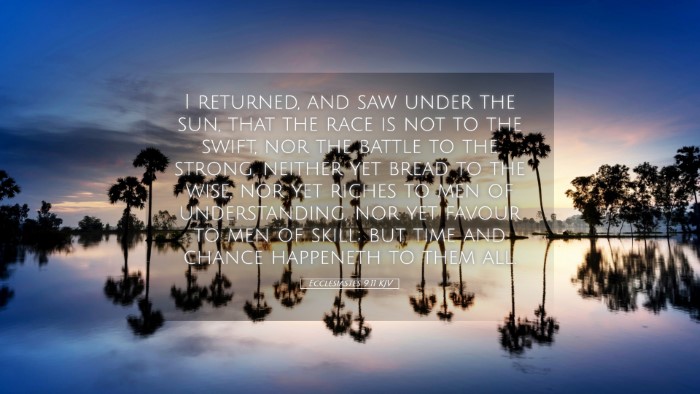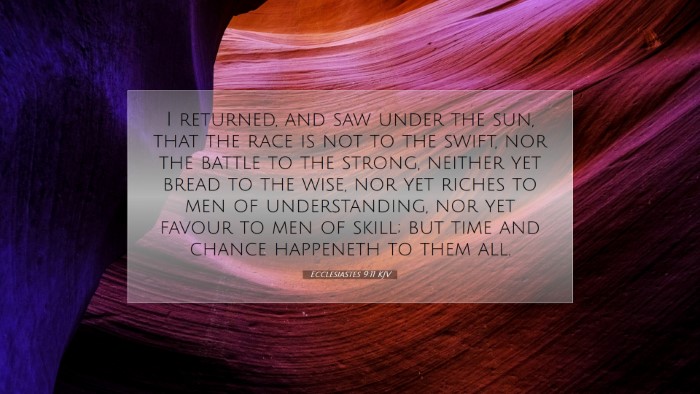Ecclesiastes 9:11 Commentary
Verse: "I returned, and saw under the sun, that the race is not to the swift, nor the battle to the strong, neither yet bread to the wise, nor yet riches to men of understanding, nor yet favour to men of skill; but time and chance happeneth to them all." (Ecclesiastes 9:11)
Introduction
The verse of Ecclesiastes 9:11 encapsulates a profound observation about life that resonates deeply with the human experience. Loosely translated from the Hebrew, it highlights the inherent unpredictability that governs the outcomes of actions and endeavors, positing that success is not solely the domain of those with the highest abilities or talent.
The Nature of the Race
Matthew Henry perceives the "race" metaphor as emblematic of life's various pursuits. Here, the preacher asserts that swiftness does not guarantee success. Many start strong or appear destined for achievement, yet the ultimate outcome often diverges from human expectations.
This notion serves as an important reminder to individuals engaged in ministry, scholarship, or other endeavors, urging them to recognize that human effort and speed alone do not determine the results. Instead, it is God's providence and timing that often play the decisive role in the unfolding of one’s life ambitions.
Strength in Context
Albert Barnes elaborates on the idea that "the battle is not to the strong." In the context of a warrior’s strength or skill, the victories in life, whether they be tangible or spiritual, are not solely reserved for the strong and capable. Likewise, in pastoral duties, it is essential to understand that strength and physical prowess do not always lead to triumph, especially in a spiritual realm that prioritizes faith and reliance upon God.
The Quest for Wisdom
The preacher further emphasizes, "neither yet bread to the wise." Here, Adam Clarke interprets wisdom as an essential quality; however, it does not necessarily equate to material abundance. This warning-minded observation calls into question the often-held belief that wisdom will invariably lead to security or prosperity. Indeed, many wise individuals may find themselves lacking, emphasizing that material success may come to the fool rather than the wise.
Understanding Time and Chance
The climax of this verse is found in its assertion: "but time and chance happeneth to them all." Both Henry and Barnes draw attention to the role of divine sovereignty intertwined with human randomness—the significance of time and chance is a reality that defies human logic. Life’s outcomes cannot be fully grasped or predicted by human wisdom or skills. This element of chance can serve as both an encouragement and a caution to those in spiritual leadership and other roles, fostering a continual reliance on God rather than solely on their abilities.
The Theological Implications
At a theological level, this verse prompts an appreciation for the doctrine of divine providence—a theme deeply rooted in the Judeo-Christian tradition. The seemingly chaotic interplay of time and chance operates under the overarching guidance of a sovereign God, ensuring that all events ultimately serve His purpose.
Clarke emphasizes that this underscores the value of humility in human endeavors. When one recognizes that outcomes do not rest solely on capability, it encourages believers to seek God's guidance persistently and trust in His perfect timing and wisdom.
Practical Applications
From a practical perspective, Henry notes that humility becomes a vital attribute for pastors, students, and scholars. Acknowledging one’s limitations can substantially shape the approach to ministry and study. Instead of competing based on speed or strength, individuals are encouraged to rest in God's timing and sovereignty.
- Encouragement in Trials: During hard times, remind yourself and your congregation that success does not always follow a straight path and that setbacks can produce spiritual growth.
- Value in Seeking Wisdom: Emphasize that true wisdom comes from God and leads toward understanding the unpredictability of life.
- Fostering Community: Invite collaboration in ministry efforts, appreciating the contributions of diverse gifts and abilities, rather than focusing solely on speed or strength.
Conclusion
Ecclesiastes 9:11 casts a reality check on the expectations we hold regarding life's outcomes. Through the insights gleaned from public domain commentaries, we learn that while human wisdom, strength, and speed have their place, they do not guarantee success. The ultimate acknowledge of our reliance on God’s timing and providence is key to navigating life's unpredictability and directing our efforts in a manner that honors Him.


